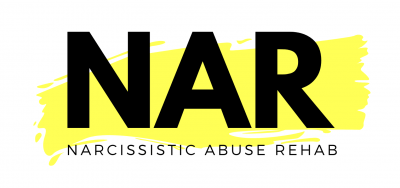On September 15, 2020, Hawaii became the first US state to adopt legislation against Coercive Control. Governor David Ige signed into law a historic amendment expanding the definition of domestic abuse to include “Coercive Control between family or household members for the purposes of insurance and protective orders.”
The bills were supported by the Hawaii State Commission on the Status of Women as well as the Hawaii’s Women’s Legislative Caucus.
Among those present for the signing of the historic bill via Zoom was Hawaii State Senators Laura H. Thielen and Rosalyn Baker, and Members of the Hawaii House of Representatives Linda Ichiyama, David Tarnas, and Linda Cheape Matsumoto.
Domestic abuse costs the USA 3.3% of its annual gross domestic product
Research shows that Coercive Control legislation makes fiscal sense for the United States.
According to the World Health Organization, the annual cost of domestic abuse in the USA is an average of 3.3% of the gross domestic product in the form of direct and indirect costs.
According to the National Violence Against Women Survey published by the Center for Disease Control, domestic abuse causes a loss of 32,114 jobs and 8 million hours of paid labor every year.
In addition to this, every year there are 486,151 emergency room visits by people seeking treatment for rape and physical assault.
By expanding the definition of domestic abuse to include Coercive Control in every state, the USA stands to save billions of dollars as shown by the 1994 Violence Against Women Act sponsored by Joe Biden, which led to an estimated net benefit of $16.4 billion, including $14.8 billion in averted victims’ costs.
Coercive Control is the first step in domestic violence
Rep. David A. Tarnas introduced House Bill 2425, which expands the concept of domestic violence to include Coercive Control.
“HB2425 adds Coercive Control to the definition of domestic abuse. It is a useful term to help strengthen our statutory basis for preventing domestic violence”, Rep. Tarnas said at the bill signing. “We need to address domestic violence because it is pervasive in our community. It is even worse now because of the economic impact fo the COVID pandemic.”
Coercive Control is the first step in domestic violence. If we can identify it and stop it there, we can save lives.
Rep. David A. Tarnas
Rep. Tarnas described how he learned about Coercive Control through the advocacy of two constituents. “Officer May Lee in Waimea, first introduced me to this whole concept and educated me about how Coercive Control is the first step in domestic violence. If we can identify it and stop it there, we can save lives.”
The bill was inspired by Scotland’s domestic abuse prevention program, widely praised as the most cutting edge in the world.
“I want to acknowledge another constituent, Barbara Gerbert, [professor emeritus and chair of the Division of Behavioral Sciences at the University of California, San Francisco] who has been working in domestic violence prevention research for years”, said Rep. Tarnas. “She was the first person to tell me about Scotland, where they incorporated Coercive Control into their statutes. It has shown to be very effective over time at reducing the incidence of domestic [abuse] cases that escalated into violence. They feel that it did prevent homicides from happening in an area where they had significant problems.”
Superintendent Gordon McCreadie, the former national lead for domestic abuse for Police Scotland, was delighted by news of Hawaii’s new Coercive Control Bill.
“When appointed in 2017, I never imagined that Police Scotland and partners including Medics Against Violence would influence legislative change in Hawaii on coercive control.”
Under the leadership of Superintendent McCreadie, 25,000 police officers were educated about domestic violence and coercive control in Scotland.
The groundwork for Hawaii’s Coercive Control bill
Through her extensive domestic abuse research, Professor Gerbert is a key figure in the advancement of the understanding Coercive Control in Scotland today.
Professor Gerbert explains, “In my research at the University of California, San Francisco, I developed a model of steps people could use to reduce domestic violence. AVDR: Ask Validate Document and Refer. My goal was to support and simplify what law enforcement, health care professionals, veterinarians, etc., could do.”
Her model laid the foundation for Scotland’s Ask Support Care training on domestic abuse from Medics Against Violence and the Scottish Violence Reduction Unit. Through this program, over 2000 professionals were taught to spot the signs of domestic abuse in patients and clients.
“In 2009, the newly formed Violence Reduction Unit in Scotland asked me if they could use my AVDR model,” says Professor Gerbert, “Scotland had a very high rate of all types of violence. In 10 years violence rates have decreased dramatically.”
In 2017, the short film Harder was produced as part of the training program. The clip illustrated some of the red flags of domestic abuse, specifically the omnipotence aspect of Coercive Control and what professionals can do when they spot it.
After many years of tireless research and advocacy, a broader understanding of non-physical abuse was achieved, pinpointing coercive and controlling behavior as well as ways that members of the community and law enforcement could intervene.
In summary
If you would like to see the definition of domestic abuse expanded to include Coercive Control in your state, reach out to your local representative. Write and tell them about the historic Coercive Control Bill in Hawaii and how you think it could benefit your state.
Coercive Control FAQ
Coercive behavior is an act or a pattern of acts of assault, threats, humiliation and intimidation or other abuse that is used to harm, punish, or frighten their victim.
Controlling behavior is a range of acts designed to make a person subordinate and/or dependent by isolating them from sources of support, exploiting their resources and capacities for personal gain, depriving them of the means needed for independence, resistance and escape and regulating their everyday behavior.
Yes. In Hawaii and California.
Resources
Lee, C., Takumi, R.M. (2020, September 15) “HB2425: A Bill for an Act Relating to Domestic Abuse”. Committees on Consumer Protection & Commerce and Judiciary. Retrieved October 3, 2020.
Tarnas, Brower, Creagan, Lee, C., McKelvey, Mizuno, Nakamura, Nakashima, Perruso, Takayama, Ward, Yamane, Lowen, San Buenaventura, Say. (2020, September 15). Hawaii House Bill 2425 relating to Domestic Violence: Coercive Control. Retrieved October 08, 2020.
Tarnas, Brower, Creagan, Lee, C., McKelvey, Mizuno, Nakamura, Nakashima, Perruso, Takayama, Ward, Yamane, Lowen, San Buenaventura, Say. (2020, September 15) “HB 2425 HD1 SD1: Relating to Domestic Abuse”. Hawaii State Legislature. Retrieved October 3, 2020.
Ige, D., Thielen, L.H., Baker, R.H., Tarnas, D.A., Ichiyama, L., Cheape Matsumoto, L. (2020, September 15). “Bill signing ceremony for the Women’s Legislative Caucus Bills.” Zoom. Retrieved October 3, 2020.
Max, W., Rice, D. P., Finkelstein, E., Bardwell, R. A., & Leadbetter, S. (2004, June 19). The economic toll of intimate partner violence against women in the United States. Retrieved October 05, 2020.
Cassidy, P., Thomson, J., Mitchell, J., Media, P., & STV News. (2020, September 17). Hawaii’s new domestic abuse law influenced by Scotland. Retrieved October 05, 2020.
Medics Against Violence. (2017, June 25). Harder. YouTube. Retrieved October 5, 2020.
NAR’s Journalistic Standards and Practices • About NAR • Report Typo or Error.






